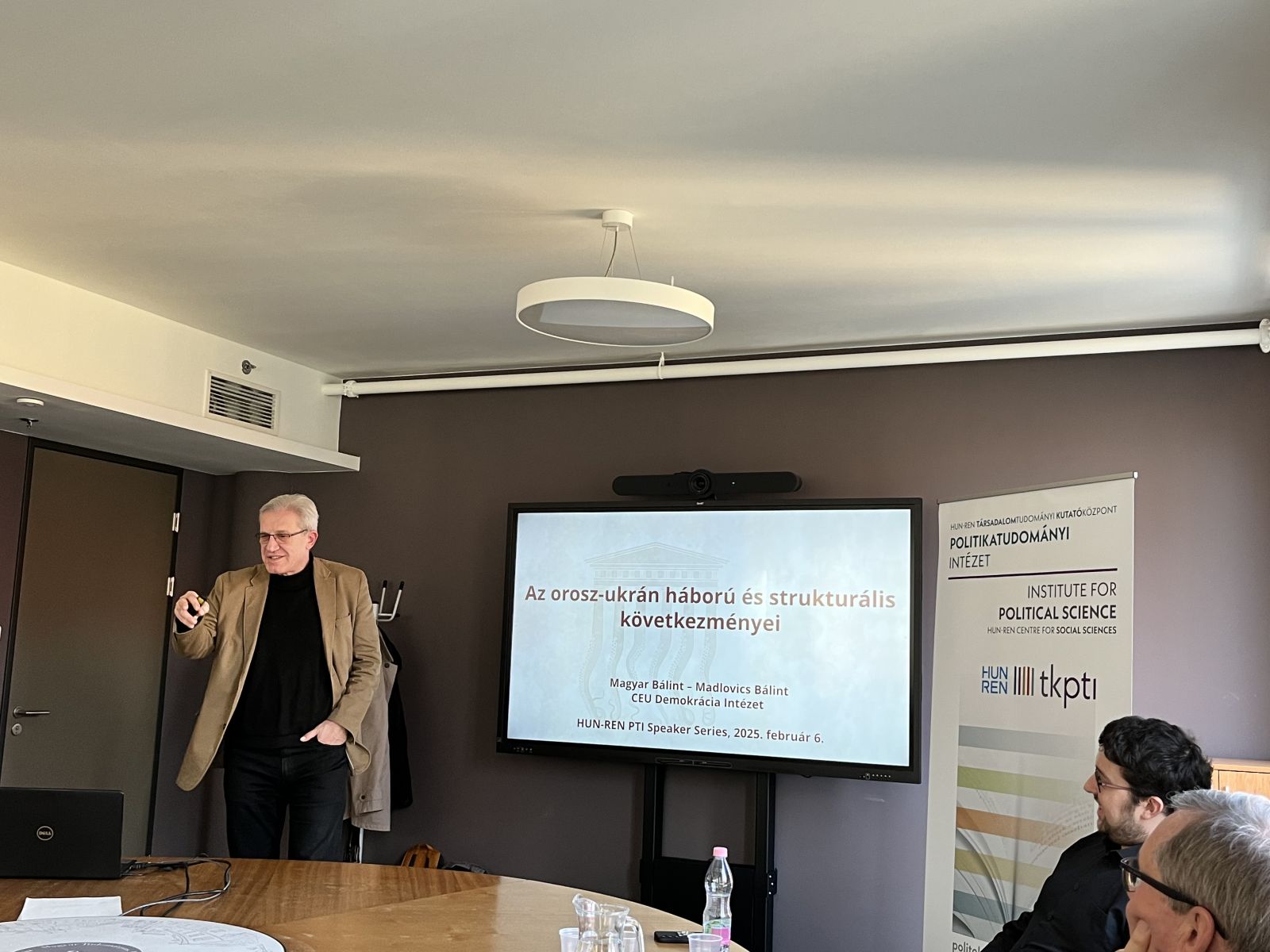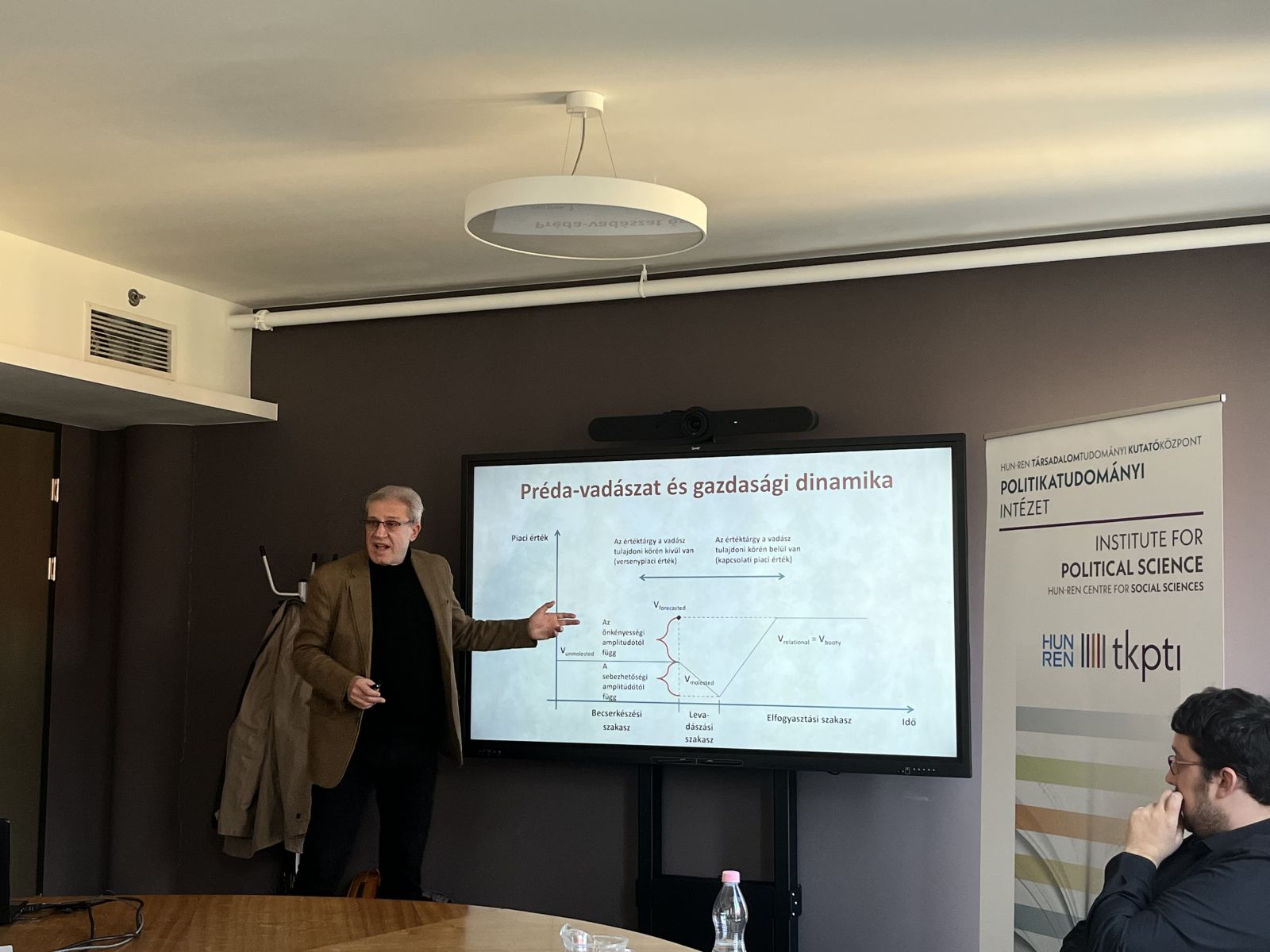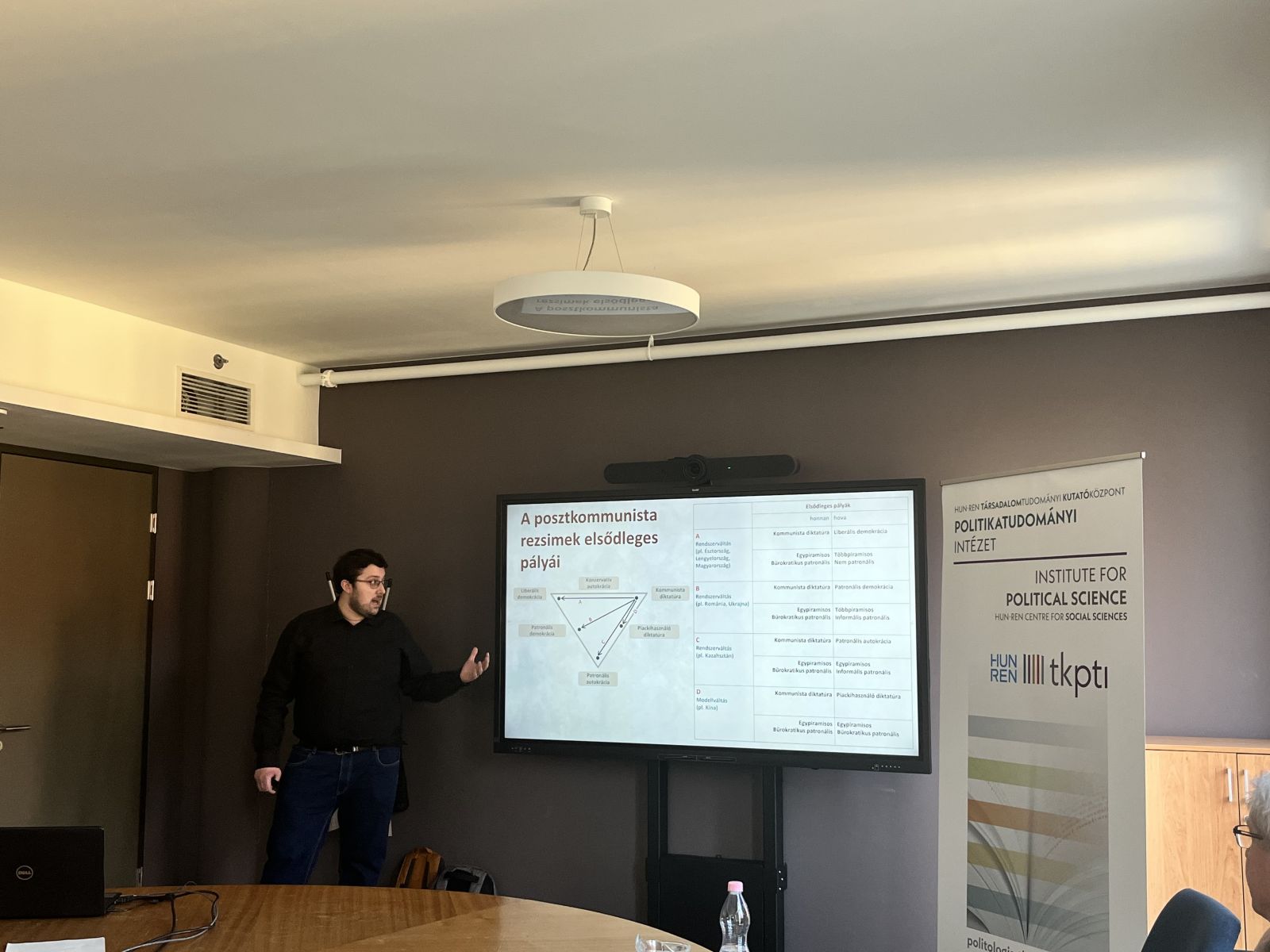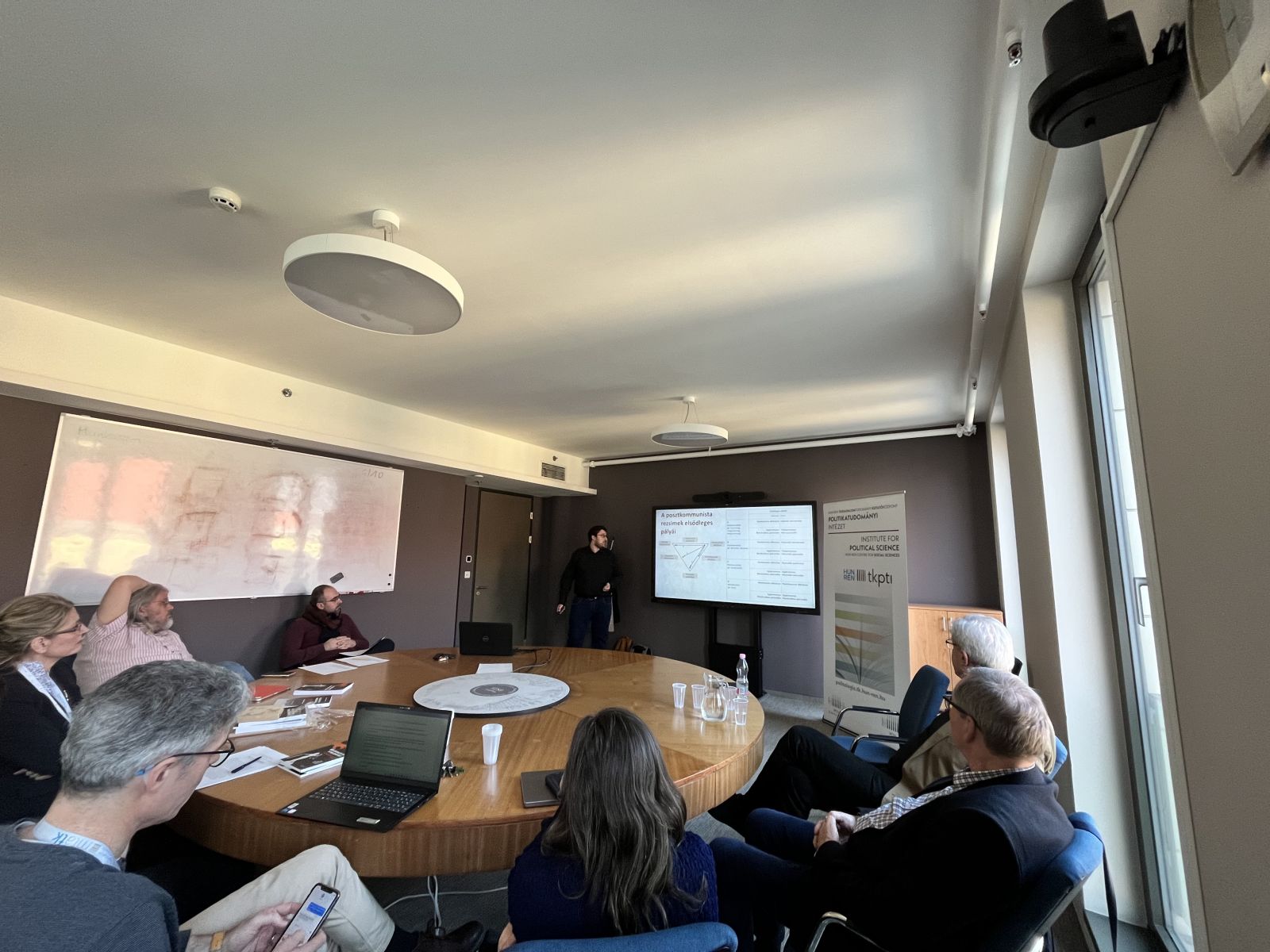.png)
.png)
The occasion for the lecture was the publication of the editors' new two-volume work in 2023 about the Russia-Ukraine war. The first volume explores Ukraine's opportunities to dismantle the power structures inherited from the socialist era and establish a Western-style liberal democracy. The second volume examines the broader implications of the conflict, particularly its effects on the balance of power in Eastern Europe and Eurasia.
The lecture was divided into two parts. In the first section, Bálint Magyar presented the conceptual framework developed in the authors' previous works. Their approach critically engages with the prevailing assumption of transitology, which holds that states in Central and Eastern Europe would inevitably become liberal democracies in light of the institutional transformations of the early 1990s. The authors highlight that the key shortcoming of transitology is its failure to account for informal structures. They identify four analytical categories crucial to understanding the anatomy of post-communist regimes: (1) the ruling elite, (2) the methods of exercising power, (3) the regime's relationship to income and property and (4) the role of legality.
Following the critique of transitology, Bálint Magyar introduced one of the ideal types of post-communist regimes, namely single-pyramid patronal autocracies, using Hungary as an example. In such systems, ruling elites do not form a clearly delineated political or economic class. Instead, they function as "adopted political families" organised around personalised networks of loyalty. In single-pyramid patronal autocracies, power is exercised not through institutional frameworks but via informal, clientelist structures. Furthermore, the state does not function as a neutral regulator but as a political actor shaping income and property relations. Lastly, in such systems, legality serves merely as a tool for the ruling elite to consolidate its power.
In the second part of the lecture, Bálint Madlovics presented the challenges that Ukraine's political and economic system faces in the wake of the war. While most post-communist regimes have followed clear trajectories in previous decades, Ukraine has been characterised by regime-cyclical shifts. According to Bálint Madlovics, this instability comes from rival clans that constantly limit each other's attempts to concentrate power.
However, Volodymyr Zelenskyy's presidency and the outbreak of the Russia-Ukraine war have created a new reality: due to the president's anti-patronal agenda and the declining influence of oligarchs during the war, a window of opportunity has opened for a liberal democratic transformation. Nevertheless, Bálint Madlovics concluded the lecture by emphasising that it remains an open question whether post-war Ukraine will indeed move toward liberal democracy or whether its political system will continue to be shaped by acts of unilateral power concentration.
The work of Bálint Magyar and Bálint Madlovics offer a new perspective on understanding the internal structure and logic of post-communist regimes. On top of that, they also contribute to moving beyond the democracy-dictatorship dichotomy inherited from transitology. The lecture addressed a highly relevant topic, providing deeper insights into the structural background and consequences of the Russia-Ukraine war.
The volumes was published in English, Ukrainian and Russian with open access. They are available at the following link:




As part of the pti memo series, we publish short blog posts about the Speaker Series events of the HUN-REN CSS Institute for Political Science, expanding the accessibility of fresh and socially relevant political science research. You can find more information about the Institute’s upcoming events here.
Author of the blog post: Dominik Rákos
Date of publication: 11 February 2025
